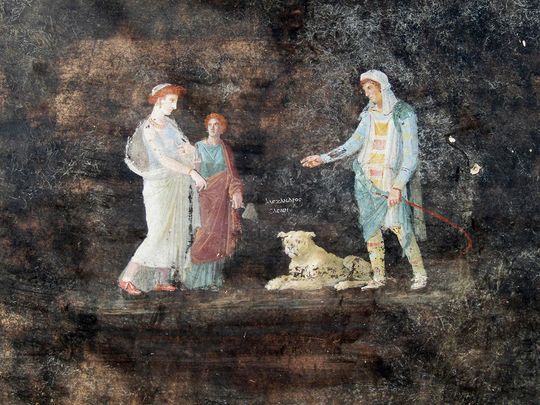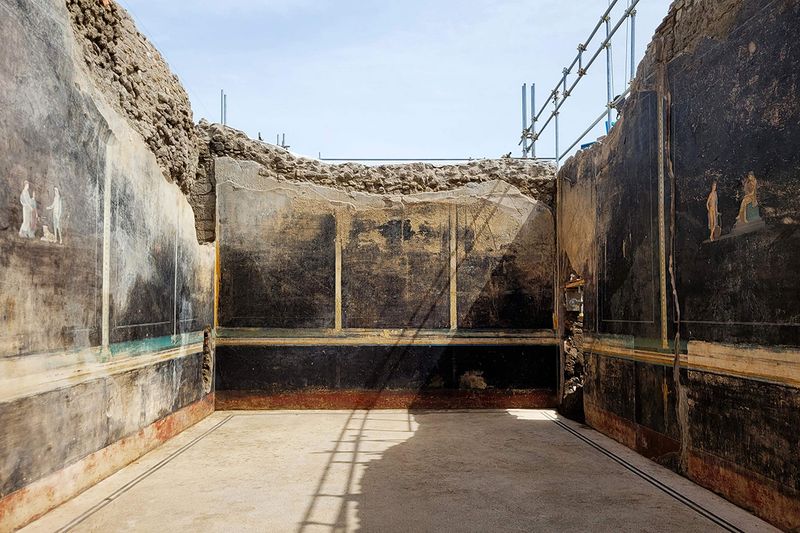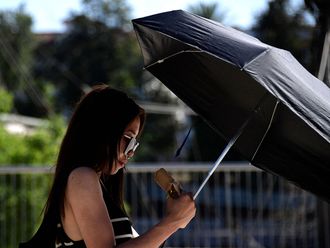
Rome: A black-walled banqueting hall decorated with scenes from Greek mythology, where ancient Romans feasted by candlelight, has been unearthed in Pompeii, the archaeological park said Thursday.
The exceptionally well-preserved frescoes show the god Apollo attempting to seduce Trojan priestess Cassandra, and Helen of Troy meeting Paris, an encounter which would lead to war.
"The mythical couples were starting points for talking about the past and life," Pompeii director Gabriel Zuchtreigel said in a statement.
"The walls were black to prevent the smoke from the lamps on the walls from being seen," he said.
"Here they gathered to feast after sunset, the flickering light of the lamps made the images seem to move, especially after a few glasses of good Campania wine," said Zuchtreigel, referring to the southern Italian region.
Pompeii was devastated when nearby Mount Vesuvius erupted almost 2,000 years ago in 79 AD.

The ash and rock helped preserve many buildings almost in their original state, as well as forming eery shapes around the curled-up corpses of victims of the disaster, thought to number around 3,000.
The hall, with its nearly intact white mosaic floor, was discovered during an excavation which has also uncovered a bakery, a laundry and houses with sumptuous frescoed living rooms.
'Treasure chest'
"Pompeii is truly a treasure chest that never ceases to surprise us and arouse amazement because, every time we dig, we find something beautiful and significant," Culture Minister Gennaro Sanguiliano said.
The spacious hall shows "the high standard of living" in the domus, where building works had been under way when the volcano erupted, Pompeii said.
It said the fresco themes appear to be heroism and destiny, with the relationship between individuals and fate embodied by Cassandra, who is cursed by Apollo for rejecting him, so that she can forsee the future but is believed by no-one.
"The frequent presence of mythological figures on frescoes in the reception rooms of Roman houses had precisely the social function of entertaining guests and guests, providing subjects for conversation and reflection on the meaning of existence," the park statement said.
The banqueting hall - which measures some 15 metres by six metres - opens into a courtyard which appears to be an open-air service hallway, with a long staircase leading to the first floor.
A vast pile of construction materials was found set aside under the arches of the staircase.
"Someone had drawn in charcoal, on the rough plaster of the arches of the great staircase, two pairs of gladiators and what appears to be an enormous stylised phallus," the statement said.
Pompeii is now a UNESCO World Heritage Site and the second most visited tourist site in Italy, after the Colosseum in Rome.
Archaeologists estimate that 15 to 20 per cent of Pompeii's population died in the eruption, mostly from thermal shock as a giant cloud of gases and ash covered the city.










_resources1_16a30b3523c_small.jpg)

